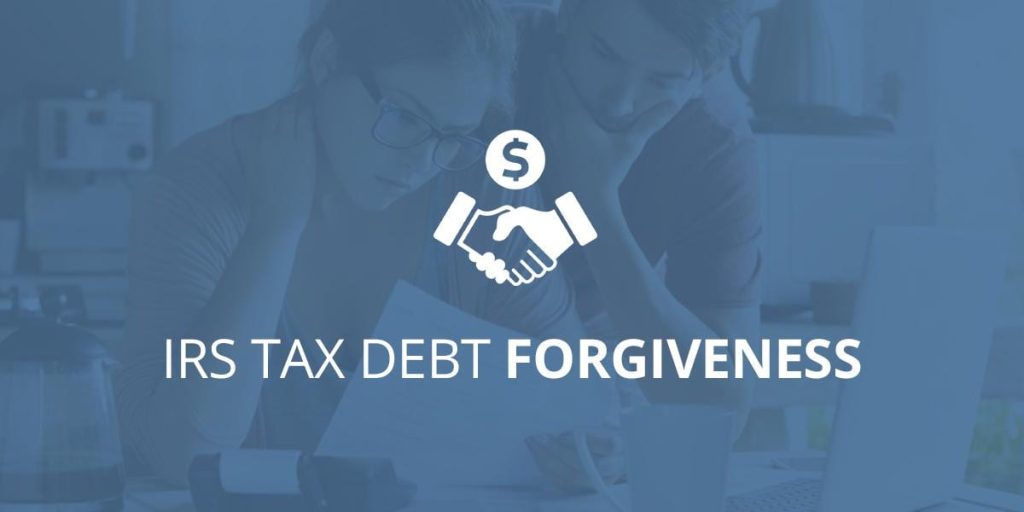What Is IRS Debt Assistance?
IRS debt assistance includes various programs and solutions that help taxpayers who owe back taxes. These programs are designed to provide relief through structured payment plans, tax settlements, penalty reductions, and even partial debt forgiveness. The goal is to help taxpayers resolve their IRS debt in a way that is manageable and fair.
Many Americans face IRS tax debt due to unexpected financial hardships, errors in tax filing, or failure to pay taxes on time. If left unresolved, IRS debt can lead to serious consequences, including:
- Wage garnishment
- Bank account levies
- Tax liens on property
Fortunately, with the right IRS debt assistance program, you can work towards resolving your tax debt and regaining financial stability.
Who Qualifies for IRS Debt Assistance?
The IRS has specific criteria for taxpayers seeking debt relief. While each case is reviewed individually, general eligibility includes:
- Owing $50,000 or less in total tax debt
- Earning less than $100,000 per year (or $200,000 for married couples)
- Filing all past due tax returns
- Demonstrating financial hardship that prevents full repayment
If you meet these qualifications, you may be eligible for one or more IRS debt relief programs.
Available IRS Debt Assistance Programs

The IRS offers several debt relief solutions depending on your financial situation. Below are the most common options available:
Installment Agreements (IRS Payment Plans)
An Installment Agreement allows taxpayers to pay off their debt over time with manageable monthly payments. This option is ideal for individuals who cannot pay their entire tax debt upfront but can commit to consistent payments.
However, keep in mind:
- Interest and penalties will continue to accrue until the debt is fully paid.
- A setup fee may be required to establish the payment plan.
- The IRS may file a Notice of Federal Tax Lien, which can impact your credit score.
If you choose this route, it’s important to make payments on time to avoid defaulting on the agreement.
Offer in Compromise (OIC)
An Offer in Compromise (OIC) allows taxpayers to settle their tax debt for less than the full amount owed. The IRS may accept an OIC if they determine that:
- The taxpayer cannot afford to pay the full amount.
- There is doubt as to the total amount owed (e.g., errors in tax assessment).
- Collecting the full debt would cause severe financial hardship.
To apply for an OIC, you must:
- Provide detailed financial information to prove hardship.
- Stay current on tax filings.
- Be free of any open bankruptcy proceedings.
The IRS offers three payment options for an OIC:
- Lump Sum: Pay the agreed settlement amount in one payment.
- Short-Term Payment Plan: Pay the settlement in five or fewer payments.
- Deferred Payment Plan: Make multiple payments over a longer period.
Since OIC applications require strong supporting evidence, many taxpayers seek professional assistance to improve their chances of approval.
Currently Not Collectible (CNC) Status
If you are experiencing extreme financial hardship, the IRS may classify your debt as Currently Not Collectible (CNC). This means they will temporarily pause collection efforts. However:
- Interest and penalties will still accrue.
- The IRS may review your financial situation periodically to determine if you can resume payments.
To qualify for CNC status, you must submit a financial statement detailing your income, expenses, and assets. The IRS will use this information to evaluate your financial hardship.
IRS Fresh Start Program
The IRS Fresh Start Program helps taxpayers with overdue tax debt by offering more lenient terms for installment agreements and OICs. This program aims to prevent severe penalties and helps taxpayers avoid aggressive collection actions.
The Fresh Start Program includes:
- Higher debt thresholds for installment agreements
- Reduced penalties and interest rates
- Easier access to OIC settlements
By enrolling in this program, taxpayers can work towards financial recovery without the added stress of IRS enforcement actions.
Benefits of IRS Debt Assistance

Seeking IRS debt assistance offers several advantages, including:
- Reduced financial stress: Lower payments and settlement options make managing debt easier.
- Prevention of aggressive IRS actions: Avoid wage garnishments, liens, and levies.
- Potential for debt reduction: Programs like Offer in Compromise can reduce total tax owed.
- Improved credit score: Resolving tax debt can positively impact your credit standing over time.
How to Get Started With IRS Debt Assistance
If you owe the IRS and need assistance, here’s how you can take action:
- Assess Your Debt: Gather all tax documents to determine how much you owe.
- Explore Your Options: Consider whether an installment agreement, OIC, or Fresh Start Program suits your financial situation.
- Contact a Tax Professional: Get expert guidance on how to proceed with IRS negotiations.
- Apply for Relief: Submit the necessary paperwork and wait for IRS review.
- Stay Compliant: Make timely payments and keep up with future tax filings to avoid further issues.
Conclusion
IRS tax debt can feel overwhelming, but with the right IRS debt assistance program, you can find a manageable solution. Whether through payment plans, debt settlements, or other relief options, there is a way forward. By taking action today, you can protect your finances, reduce stress, and work towards financial freedom.
